The “tauk tauk” sound of wood banging echoed from the village head’s house, which stood at the center of the village.
Sai Tun’s heart pounded louder than the wooden knocks as soon as he heard them. This knocking was a signal, calling all the villagers to gather at the village headman’s residence. Excitedly, the villagers left their homes and congregated at the village head’s house.
Once everyone was assembled there, the village chief explained the purpose of their gathering.
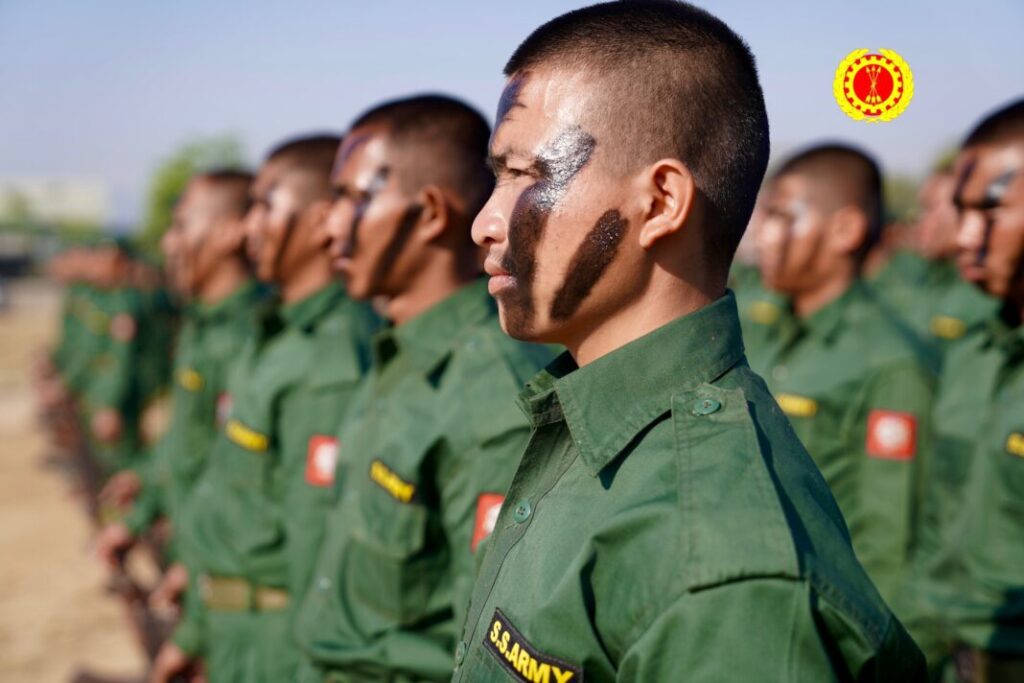
The reason behind it was the Shan State Progressive Party/Shan State Army (SSPP/SSA) requesting the village to provide new soldiers. Sai Tun had known this beforehand, but the villagers were hearing it for the first time. Their faces instantly showed disappointment and sadness upon hearing the news.
This isn’t the villagers’ first encounter with such events. Back in 2015, when the Shan State Restoration Council/Shan State Army (RCSS/SSA) entered Northern Shan State right after signing the Nationwide Ceasefire Agreement, they implemented recruitment practices in the area. At that time, Sai Tun was just a young boy, not yet of age to be recruited.
Now, Sai Tun finds himself facing recruitment in one of the townships in Northern Shan State, experiencing it firsthand.
“They requested two men from each village. In the past, many young men had already been conscripted by the RCSS/SSA, leaving only a handful in the village. Later, many resorted to living in the forest and farmlands to avoid recruitment. Due to the lack of young men, it was difficult to rely on young people even during village and community festivities and social events. Now, it’s SSPP/SSA, who are conducting recruitment,” Sai Tun calmly explained.
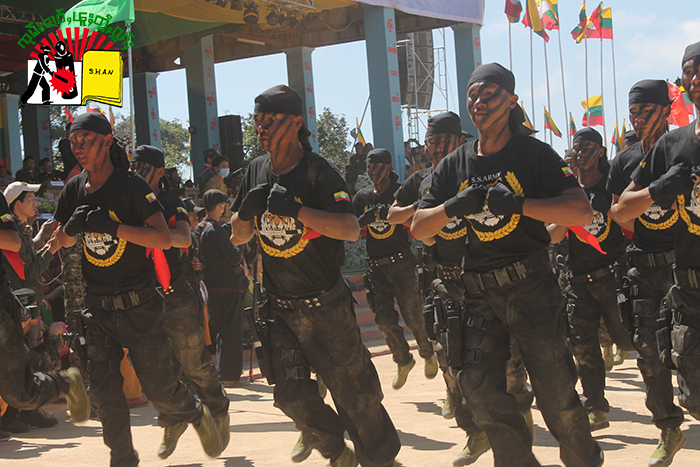
The local people commonly refer to RCSS/SSA troops, who wear guerrilla or camouflage uniforms, as “camouflage,” and SSPP/SSA soldiers, who don green uniforms, as simply the “green.”
“Back then, the recruitment policy dictated that households with two to three sons had to provide one son. This policy gradually reduced the number of young men in the village. Eventually, it didn’t matter how many sons a household had; they had to conduct a lucky draw to determine the son from which the household would be recruited”, Sai Tun shared the challenges faced by the villagers and the responsibilities placed on the village head.
This time, Sai Tun was well aware of the process. His father, holding the position of village head, knew about the new recruitment even before the other villagers were informed. Yet, Sai Tun couldn’t help but feel excited, just like the other villagers, as he listened once again to the request from the SSPP/SSA, delivered through his father, the village head.
“There have been tensions between the ‘green’ or the SSPP/SSA and the ‘camouflage’ RCSS/SSA in the area. Currently, the SSPP has control of this side of the region, so it’s them who are recruiting new members. They pass the message to village heads, like my father, to request a certain number of men from each village. Since my father is the village head, he can’t refuse the request. He has to find a way to please both sides – the EROs and the villagers. Some people choose not to hide and stay in the forest and farmlands; instead, they borrow money and go to Thailand,” Sai Tun calmly explained, shedding light on the complex circumstances faced by the local people and the dynamics between SSPP/SSA and RCSS/SSA.
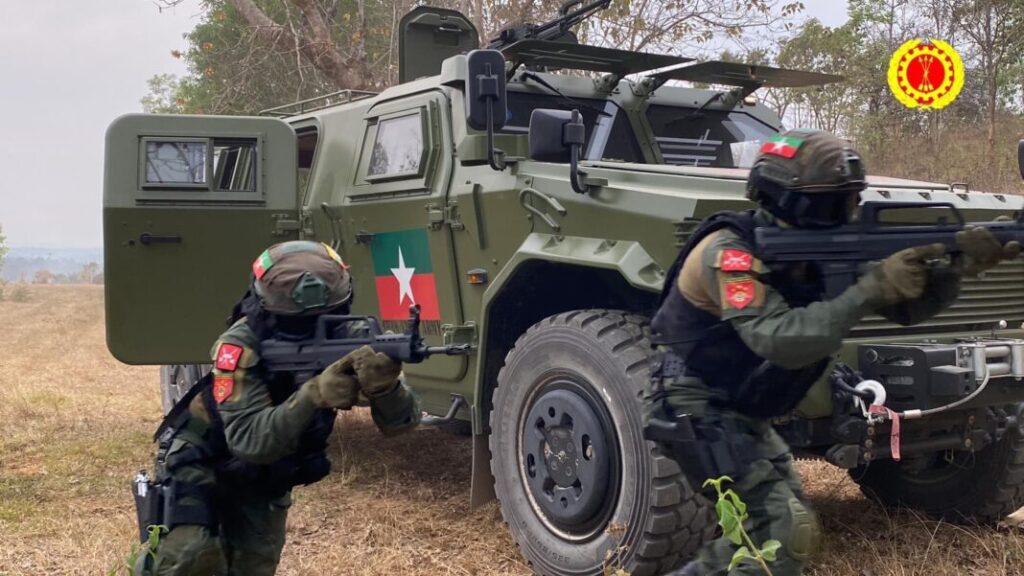
Given his understanding of the political landscape, Sai Tun no longer chose to evade the issue. Alongside a like-minded friend keen on joining the resistance movement, he made the decision to venture into the forest, signifying their commitment to joining the Ethnic Armed/Revolution Organization (EAO/ERO). Consequently, they embarked on a journey to the SSPP/SSA headquarter to undergo basic military training.
“In the early days after the coup, I participated in public peaceful demonstrations. But as news of widespread arrests circulated, I stopped going to town. It felt safer in the village. However, the presence of SSPP/SSA near the village made me anxious, especially when they started recruiting. I even considered going to Thailand,” Sai Tun recalled, describing a moment of indecision he faced during that time.
“Later, the slogans we chanted, ‘we demand federal democracy’, kept echoing in my head. Even young Burmese people were forming defense forces to resist the Myanmar military. I wondered, why not our ethnic group? We, the non-Bamar ethnic group, have been resisting the military dictatorship for decades. Motivated by the ideals of federal democracy and nationalism, I later made a firm and decisive choice to join the Shan revolution group,” Sai Tun declared with conviction.
Initially, when Sai Tun embarked on his military training journey, he struggled to keep pace with his fellow trainees and friends. His smaller and slender frame posed a challenge in the early stages. They engaged in rigorous physical training during the day and delved into concepts at night. Driven by his determination to resist dictatorship and fight for national equality, Sai Tun persevered and successfully completed the three-month basic military training.
“It’s been rare to see people of ethnic backgrounds, like Shan, working in schools and government offices. They have limited opportunities, and if they do venture into these government offices, non-Bamar ethnic groups often face discrimination. I didn’t fully grasp these issues in the past, nor did I notice the inequalities. It’s only later that I became aware of these problems. Now, I understand that to achieve federalism and equality, we have to resist the Myanmar military,” Sai Tun affirmed with unwavering determination.
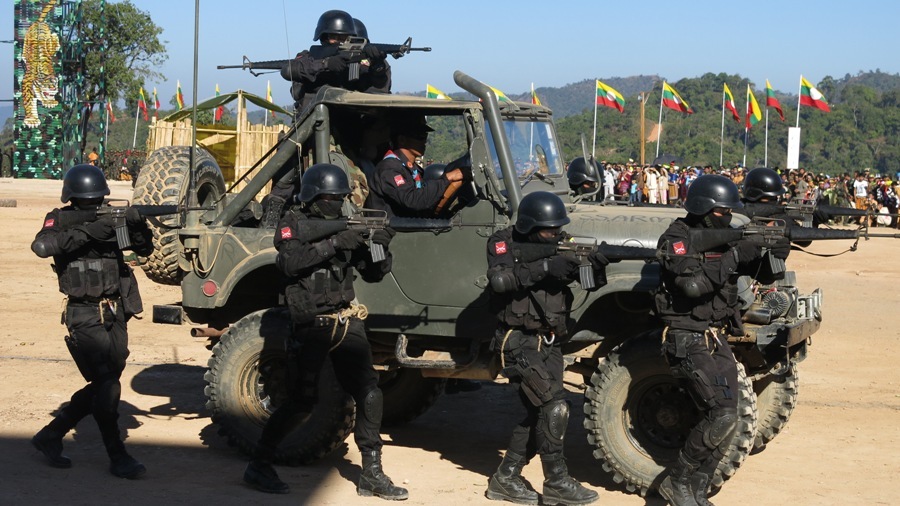
Shan State is known for having the highest concentration of active armed organizations. The inter-Ethnic Armed Organizations conflict in Northern Shan State commenced around 2015/16, mainly involving the RCSS/SSA and the PSLF/TNLA. This conflict centered on territorial disputes between RCSS/SSA and PSLF/TNLA and its allies, and it escalated significantly after 2020.
Following the military coup in 2021, a power vacuum emerged in various regions, including Shan State. Consequently, different Ethnic Armed Organizations (ERO) have been striving to fill this void. Starting from the mid of 2023, clashes between the military and various resistance groups in Northern Shan State have also increased.
Hence, nearly every group has been in a rush to recruit members in Shan State.
Sai Tun, the son of the village head, didn’t evade recruitment; instead, he voluntarily joined the resistance movements. Presently, Sai Tun is serving in the Special Commando forces, often referred to as the SSPP/SSA’s death squad.
Amidst the intense battles, Sai Tun made the challenging choice not to betray his homeland. He steadfastly continued his path within the Shan State Army’s revolution, fueled by a strong sense of nationalism and a commitment to equality.
In outlining his future plans, Sai Tun expressed, “Having departed from my home, I will remain at the organization’s assigned location. My unwavering dedication to this revolutionary movement is crucial, for it represents a national responsibility that I am committed to fulfilling.”





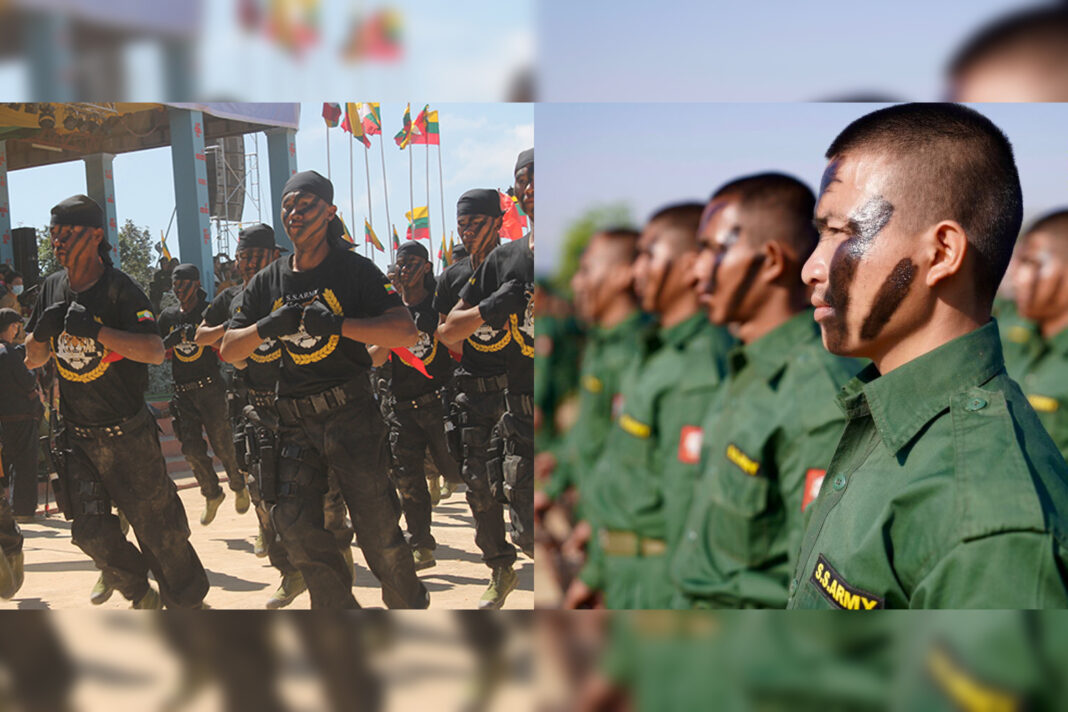
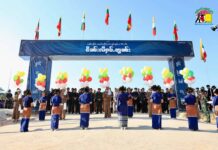
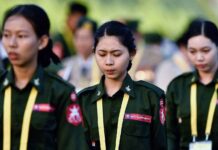
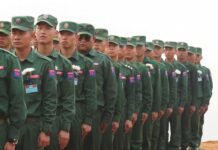
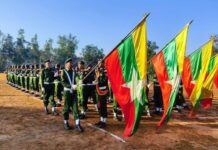
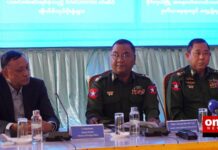






Leave a Comments